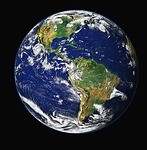This question of the consistency of science and religion has started many arguments, and these arguments are often futile. In logic an argument is based on one or more hypotheses, and a conclusion either follows as in the case of a valid argument, or does not follow as in the case of an invalid argument. But, the hypotheses are always universally agreed upon. Herein lies the problem.
The question posed is either answered definitely yes or definitely no. The reason for the differences is one underlying hypothesis. First, agreement is needed on whether the Bible is to be taken literally, or whether poetic license was used in a way that the underlying idea is what is being conveyed. The Catholic Church, and many other religions that ascribe to the same belief, requires the Bible be considered accurate on faith issues, not as an historical document. Another group of Christians called fundamentalists claim as the word of God the Bible is to be taken literally. And this is a variation in basic belief among Christians, so a universal belief among all religions inclusive of religions not Christian is certainly not possible.
The point here is that if we cannot agree on the hypothesis of the meaning of the Bible, we will reach different conclusions.











 Multivariable Calculus: Gradient, Divergence, and Curlon 12/19/2025
Multivariable Calculus: Gradient, Divergence, and Curlon 12/19/2025
 UAPs, Formerly UFOs, If They Are Real How Can We Explain Their Arrival to Earth?on 12/18/2025
UAPs, Formerly UFOs, If They Are Real How Can We Explain Their Arrival to Earth?on 12/18/2025
 Polar Coordinate Systemon 12/16/2025
Polar Coordinate Systemon 12/16/2025
 Aurora Can Disrupt Electrical Devices And Even the Grid?on 12/15/2025
Aurora Can Disrupt Electrical Devices And Even the Grid?on 12/15/2025


Comments
Thanks for the comments. Frank adds much with comments. I could not be exhaustive in this piece, but a sampling of areas that might be of interest is given.
I am not a biologist, but the idea of human cloning is a case where science is challenging what most religions consider moral. This would be for someone in the proper field. I prefer to address physics issues.
An excellent piece I have put it on my favourites bar as I frequently find myself in such discussion and am not sufficiently informed re the science aspects to give good account.
This is a straightforward and easily understood discourse for non specialists like I am .
Thank you.
When teaching advanced level Religious Studies to eighteen year old students I was teaching religion and evolution, when one Muslim girl told me her problem. When she studies science she believes in evolution; when she reads the Koran she disbelieves in it. I pointed out to her that you need consistency in belief.
The atheists you cite, people like Dawkins, Dennet and Harris, support the philosophy of scientism, which is not supported by all scientists. It is the belief that all knowledge is reducible to science. It is a derivation of the now defunct philosophy of Logical Positivism, which failed when it came to be understood that it could not explain its own main premise, that all meaningful statements were either empirical [e.g.scientific] or analytical [e.g.mathematics.] For if so, what kind of statement is main premise? Result, one dead theory.
This was a useful article that explains the issue well to general readers, and as such it does an important job.